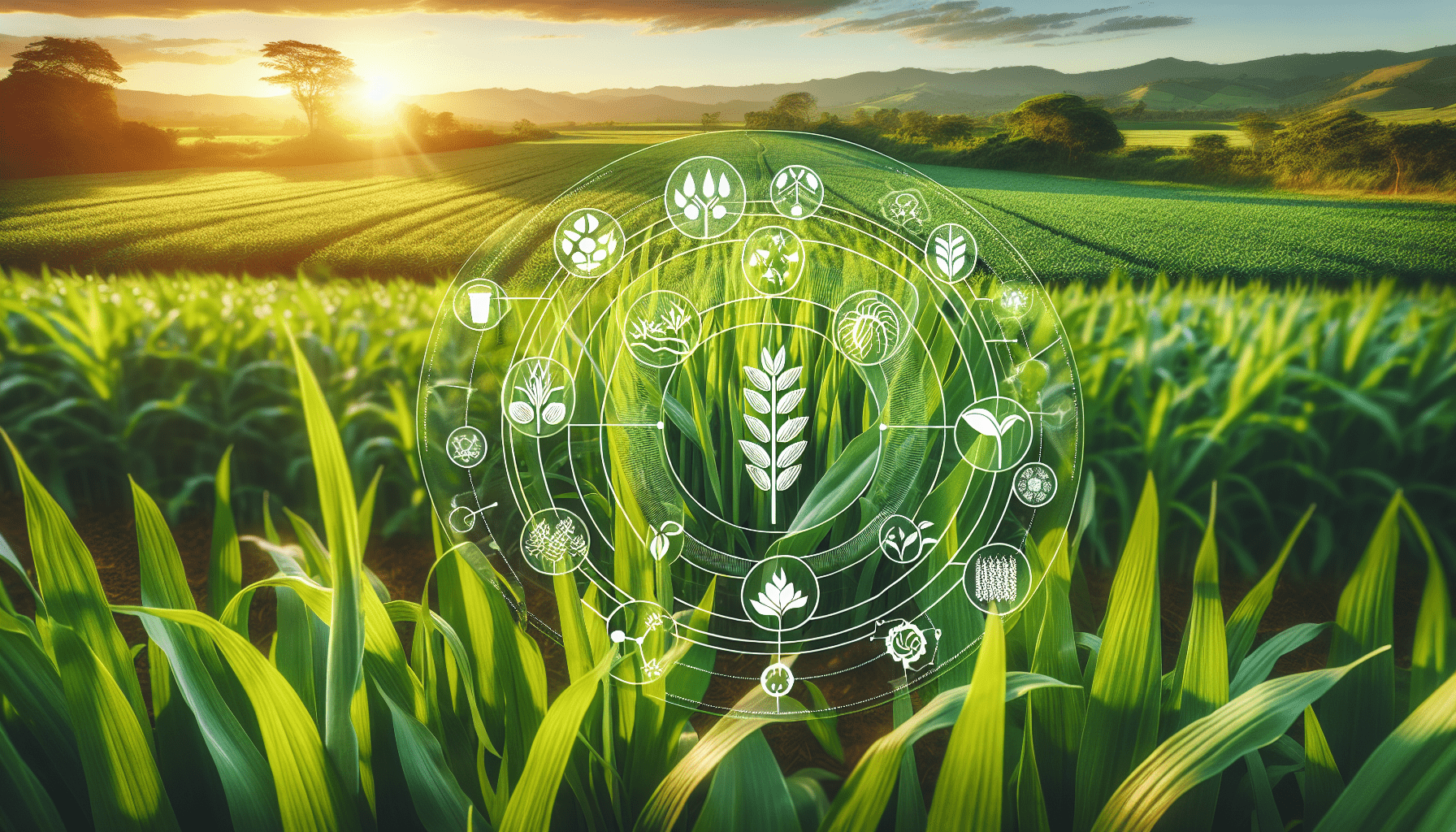This post may contain affiliate links which means I may receive a commission for purchases made through links. Learn more on my Private Policy page.
Hello there! If you’re looking to save money on fertilizer and pesticide costs in your farming practices, you’re in the right place. In this article, we’ll explore some top strategies to help you cut down on expenses while maintaining the health and productivity of your crops. From soil testing to integrated pest management techniques, you’ll find practical tips to optimize your resources and boost your profitability. Let’s dive in and discover how you can save money without compromising the quality of your harvest. Have you ever wondered how you can reduce your fertilizer and pesticide costs in farming? Farming expenses can add up quickly, but there are many strategies you can implement to save money while still maintaining a healthy and productive crop. In this article, we will discuss some of the top ways to reduce fertilizer and pesticide costs in farming.

Importance of Reducing Fertilizer and Pesticide Costs
- When you reduce fertilizer and pesticide costs, you not only save money but also protect the environment and the health of your crops.
- By using less chemical inputs, you can minimize the risk of water pollution, soil erosion, and harm to beneficial insects and plants.
Implementing Integrated Pest Management (IPM)
- Integrated Pest Management (IPM) is a holistic approach to pest management that focuses on preventing pest problems before they occur.
- By incorporating techniques such as crop rotation, cover cropping, and biological controls, you can reduce the need for chemical pesticides, saving money in the long run.
Soil Testing and Nutrient Management
- Conducting regular soil tests can help you determine the nutrient levels in your soil and identify any deficiencies or excesses that may be present.
- By carefully managing nutrient applications based on soil test results, you can optimize nutrient uptake by your crops and reduce the need for excess fertilizer inputs.
Precision Agriculture Technologies
- Precision agriculture technologies such as GPS-guided tractors and drones can help you apply fertilizers and pesticides more accurately and efficiently.
- By targeting inputs only where they are needed, you can reduce waste and save money on expensive chemical inputs.
Sustainable Farming Practices
- Adopting sustainable farming practices can help you reduce your reliance on chemical fertilizers and pesticides while maintaining healthy soil and crop productivity.
- Practices such as conservation tillage, agroforestry, and organic farming can improve soil health, increase biodiversity, and reduce the need for chemical inputs.
Cover Cropping
- Cover cropping involves planting a secondary crop, such as legumes or grasses, to cover the soil during the off-season.
- Cover crops can help prevent soil erosion, suppress weeds, and fix nitrogen in the soil, reducing the need for synthetic fertilizers.
Crop Rotation
- Crop rotation involves alternating the types of crops grown in a field over multiple growing seasons.
- Rotating crops can help break pest and disease cycles, improve soil structure, and reduce the need for chemical pesticides and fertilizers.
Agroforestry
- Agroforestry integrates trees and shrubs into agricultural landscapes to provide multiple benefits, such as improved soil fertility, biodiversity, and pest control.
- By incorporating trees into your farming operation, you can reduce the need for chemical inputs and create a more sustainable and resilient system.
Utilizing Organic Inputs
- Organic inputs, such as compost, manure, and cover crops, can provide essential nutrients to your crops while avoiding the use of synthetic fertilizers and pesticides.
- By utilizing organic inputs, you can improve soil health, increase microbial activity, and reduce the risk of chemical runoff into waterways.
Compost
- Compost is a nutrient-rich soil amendment made from organic matter, such as food scraps, yard waste, and manure.
- By adding compost to your soil, you can increase soil organic matter, improve soil structure, and enhance nutrient availability to your crops.
Manure
- Manure is a valuable source of nutrients and organic matter that can help improve soil fertility and structure.
- By properly managing manure applications, you can avoid nutrient runoff and reduce your reliance on synthetic fertilizers.
Green Manure
- Green manure involves planting legumes or other cover crops that are grown specifically to improve soil fertility.
- When incorporated into the soil, green manure can add nitrogen, suppress weeds, and enhance soil structure, reducing the need for chemical fertilizers.
Conclusion
- By implementing these top ways to reduce fertilizer and pesticide costs in farming, you can save money, protect the environment, and improve the health of your crops and soil.
- Consider incorporating these strategies into your farming operation to create a more sustainable and cost-effective system for the long term.
Remember, every small change you make in your farming practices can add up to significant savings over time. By being mindful of your fertilizer and pesticide usage and implementing sustainable farming practices, you can reduce your costs while still maintaining a thriving and productive crop. So, take the time to assess your current practices and see where you can make improvements to save money in the long run. Your wallet and the environment will thank you!

This post may contain affiliate links which means I may receive a commission for purchases made through links. Learn more on my Private Policy page.
